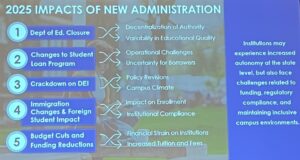How Plant-Forward Menus Help Solve Campus Dining Challenges
This month, we attended the National Association of College and University Food Services (NACUFS) conference in Salt Lake City, where campus chefs, culinary directors, auxiliary leaders, and collegiate foodservice professionals convene to learn from their peers to advance dining services on their campuses.
From the engaging presentations, we identified three critical challenges facing campus dining and how plant-based defaults offer effective solutions:
1. Managing Food Allergies: A Growing Priority
Food allergies have become a costly and persistent challenge for campus dining. One director noted, “Dealing with allergies has become challenging; it’s expensive and a growing problem with students.” Vanderbilt, Michigan State, and Mizzou transformed entire dining halls into allergen-free spaces, and others segregated allergen-free options, inadvertently separating students with dietary restrictions. One school reported a 40% increase in meals served in the allergen-free area.
Plant-Based by Default Solution: Plant-based defaults naturally address 4 out of the top 9 allergens (FDA) simultaneously (dairy, eggs, shellfish, fish). By making plant-based the default and offering animal products as a request, dining services can streamline allergen management while reducing costs.
As one chef with family members with dairy allergies shared, “My wife and daughter are allergic to dairy, so I serve plant-based options at home.”
2. Student Mental Health & Social Connection
Campus dining professionals focus on designing dining halls as social centers for students, but are increasingly concerned about student isolation, with many students eating alone. Dining halls must function as social centers, not just food service locations, and relegating students with dietary restrictions to special dining areas runs counter to this goal.
Plant-Based by Default Solution: Serving plant-based by default menus with options available by request allows students with religious and dietary restrictions and preferences to dine together, fostering social connections. With most students identifying as “flexitarians,” plant-based defaults align with giving students the preferences while creating more inclusive environments for various dietary needs.
3. Operational Challenges: Labor & Budget Constraints
Post-COVID labor shortages continue to impact campus dining, with many operations resorting to disposables to reduce labor needs, creating tension with sustainability goals. Simultaneously, the recent federal bill (HR.1) signed on July 4th threatens university budgets, with significant financial impact of a potential 10% decrease in international students on American universities, projecting a $3 billion revenue loss, with $1 billion in tuition alone.
Examples included NYU with 37% international students and Missouri S&T with 10%. Additionally, the bill includes changes to federal student loans, Pell Grants for low-income college students, and a higher tax on college endowments.

Plant-Based Solution: Plant-based by default menus offer operational efficiencies that address labor shortages through simplified food safety handling and batch preparation. They also provide financial relief, as plant proteins typically cost less than animal proteins. The Serving Up Plants Sodexo Study demonstrates that plant-based defaults can simultaneously reduce costs, simplify operations, optimize variety, and address sustainability goals—all while maintaining student satisfaction.
Looking Ahead
Plant-Based Defaults emerge as a unifying solution addressing multiple challenges simultaneously: reducing allergen risks, creating inclusive social spaces for dining, simplifying operations amid labor shortages, and optimizing budgets in an uncertain budget landscape.
Forward-thinking universities and colleges are already implementing these changes to create more inclusive, efficient, and financially sustainable dining operations for students, faculty, and staff. With the support of non-profits working on the plant-forward movement we can spread these changes across the university system.
Latest News
See All News5 Powerful Insights From Cass Sunstein, Author of Nudge
The top 5 takeaways from the recent webinar with Cass Sunstein, a renowned ‘Nudge’ author and intellectual who is a pioneer of nudge theory.
Leading Experts Behavioral Science Webinar Series
Join us for a transformative three-part series exploring how behavioral science can revolutionize our approach to designing sustainable food systems.
What We Serve Matters
In an article from Sentient Media last week, I was interviewed about the forces driving diet change globally. I believe it’s essential right now to remember how we still have the power to shape our food system. – Jennifer Channin